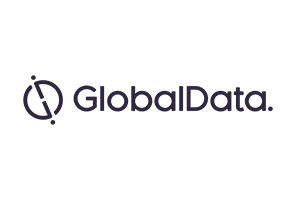On May 11, 2017, Chugai announced that it was being sued by Baxalta for infringement of US patent number 7,033,590, which covers Factor IX/Factor IXa activating antibodies and antibody derivatives that can be used as alternative coagulation promoters to prevent bleeding episodes in hemophilia A patients. Baxalta claims that the patent could prevent the US commercialization of the pipeline agent emicizumab (ACE-910), which is co-developed by Chugai, Roche, and Genentech and is investigated in four Phase III trials in hemophilia A. The company had already filed a lawsuit against the Japanese developer in Japan in 2016 in order to halt the use of the drug in clinical trials.
Baxalta, now part of Shire after the completion of a $32 billion acquisition in June 2016, is determined to defend Shire’s hemophilia A portfolio, which includes recombinant and plasma-derived factor VIII (FVIII) concentrates, as well as Feiba (activated Prothrombin Complex Concentrate [aPCC]), a bypassing agent approved for the treatment of hemophilia patients with inhibitors.
GlobalData expects the approval of emicizumab in 2018 to be a major threat to Shire’s hemophilia portfolio, which was able to generate global revenues of approximately $3.7 billion in 2016, representing a large share of the global hemophilia market whose value is estimated to be higher than $10.0 billion. Shire’s products have been treating hemophilia A patients for more than 20 years; however, FVIII concentrates and Feiba suffer from huge limitations in terms of convenience of administration, which will be overcome by Roche/Chugai’s candidate, set to revolutionize the hemophilia A competitive landscape and to gain a large share of this lucrative market.
In recent years, the pharmaceutical industry has become more and more familiar with patent wars, aimed at preventing or delaying the commercialization of the most promising clinical candidates/biosimilars in the more profitable therapeutic areas. A similar dispute was recently resolved when on January 20, 2017, Bristol-Myers Squibb (BMS) and Merck & Co. settled a patent fight over Keytruda (pembrolizumab) related to the use of programmed cell death 1 (PD-1) antibodies to treat cancer, which ended when Merck & Co. agreed to pay BMS royalties on Keytruda’s global sales from 2017 to 2026.
Despite the fact that Chugai is confident that emicizumab does not infringe Baxalta’s patent, the patent litigation is expected to favor the hemophilia giant Shire, and could potentially cause a delay of the US launch of emicizumab or allow Shire to grasp a share of emicizumab’s US sales, which GlobalData forecasts to reach $1.5 billion by 2026.
Baxalta has a long experience in patent wars in the hemophilia space, as its complaints have so far been able to prevent the European launch of Aptevo Therapeutics’ IXinity (trenonacog alfa), a recombinant Factor IX candidate for hemophilia B, and in 2016 was able to force Novo Nordisk to a patent settlement agreement over Novo Nordisk’s rFVIII NovoEight (turoctocog alfa), whose details have not been disclosed by the companies.

US Tariffs are shifting - will you react or anticipate?
Don’t let policy changes catch you off guard. Stay proactive with real-time data and expert analysis.
By GlobalData



